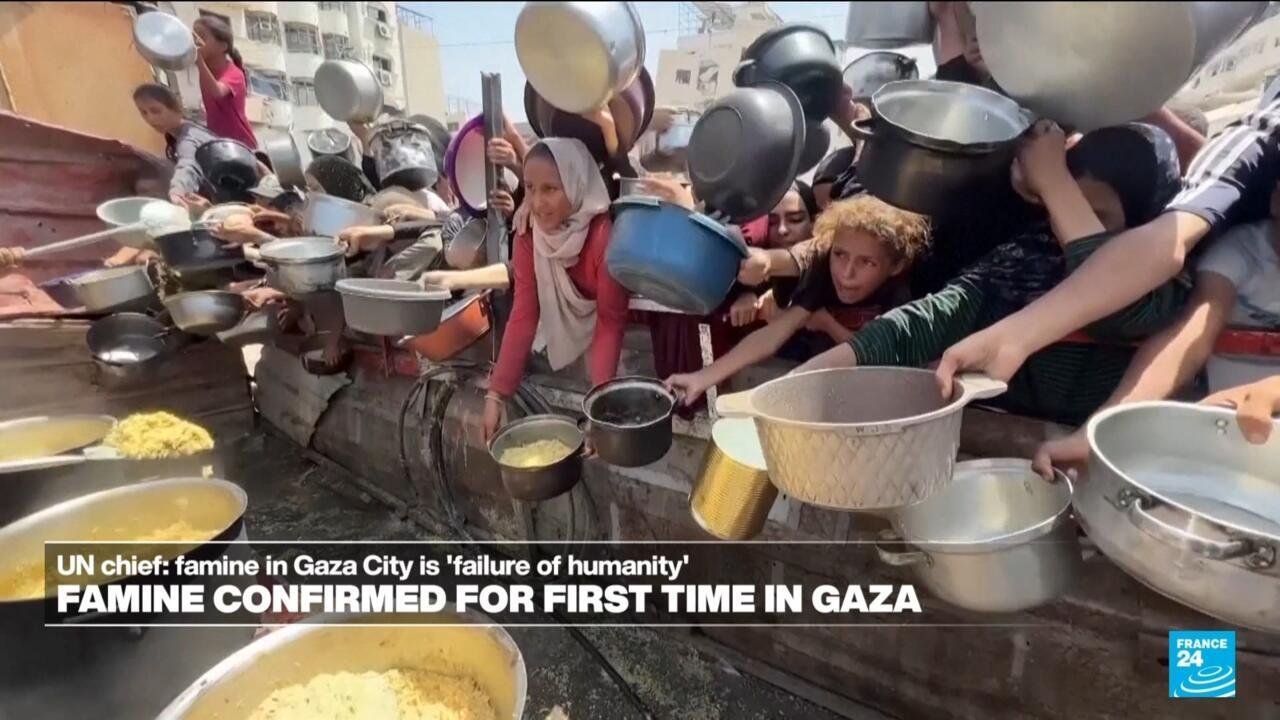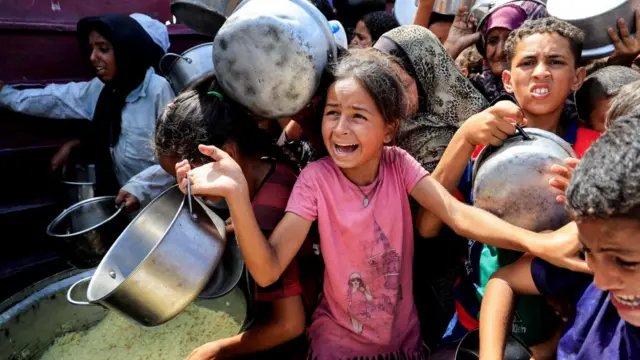An independent, United Nations-backed food security monitoring group has formally declared that famine is occurring in the Gaza City area, a conclusion that was immediately and forcefully rejected by the Israeli government as “fabricated” and “biased.”
The report from the Integrated Food Security Phase Classification (IPC), the world’s leading hunger monitor, states that the famine is “entirely man-made” and warns that conditions are spreading rapidly, with much of the rest of the Gaza Strip expected to face famine by September. The declaration comes as Israel prepares for a major military offensive into Gaza City, prompting alarm from humanitarian organizations.
The IPC, which uses a globally recognized scale to measure food crises, reached its conclusion after finding that at least two of the three key thresholds for famine had been met in northern Gaza.
The report, published Friday, has been met with strong responses from international leaders, with many accusing Israel of obstructing the delivery of life-saving aid into the besieged territory.

Famine Thresholds Met in Gaza City
The IPC’s declaration of famine is based on a technical assessment of three key indicators: extreme food shortages, acute malnutrition rates, and mortality. The report found that at least one in five households in the Gaza City area are facing an extreme lack of food, and that roughly one in three children are acutely malnourished, meeting the first two thresholds. While the IPC noted that available data for the third indicator—a mortality rate of at least two deaths per 10,000 people daily—was incomplete due to a breakdown of monitoring systems, it concluded based on existing evidence and expert judgment that this threshold had also been met.
The assessment aligns with figures from Gaza’s Hamas-run health ministry, which recently recorded its 273rd death from malnutrition and dehydration since the war began, including 112 children. The data from this ministry has been widely considered reliable by international observers throughout the nearly two-year conflict. The IPC’s analysis presents a grim outlook, projecting that without a significant change in conditions, famine is expected to take hold across most of the Gaza Strip in the coming weeks.
Aid Obstruction Cited as Primary Cause
Humanitarian organizations and international officials have stated that the crisis is a direct result of restrictions on aid entering the territory. The UN’s humanitarian chief, Tom Fletcher, said the famine was caused by Israel’s “systematic obstruction” of aid. Since the war began on October 7, 2023, Israel has controlled the flow of goods into Gaza. The situation deteriorated sharply in March 2025, when Israel imposed a nearly three-month total blockade on goods. Under intense international pressure, some aid was allowed to resume in late May, but under a new Israeli-controlled distribution system that aid agencies have described as inadequate and dangerous.
The new system, operated by the Gaza Humanitarian Foundation (GHF), replaced a UN-led network of 400 distribution points with just four sites located in militarized zones. The UN has recorded the killing of at least 994 Palestinians near these sites since late May. Aid agencies state that at least 600 trucks of aid are needed daily to meet basic needs, but currently, less than half that number is being permitted entry. UK Foreign Secretary David Lammy called the situation a “man-made catastrophe” and a “moral outrage,” while the UN Human Rights Chief, Volker Türk, warned that using starvation as a method of warfare is a war crime.
Israel Denounces Report as Biased and False
The Israeli government has vehemently rejected the IPC’s findings. Israel’s Ministry of Foreign Affairs accused the organization of publishing a “tailor-made fabricated report to fit Hamas’s fake campaign,” while the Israeli military body responsible for crossings into Gaza, COGAT, called the report “False and Biased, Based on Partial Data Originating From the Hamas Terrorist Organization.” Israeli officials specifically accused the IPC of changing its own global standards to reach its conclusion and of using unreliable data from Hamas sources.
Prime Minister Benjamin Netanyahu has repeatedly denied that starvation is occurring in Gaza, stating that where hunger exists, it is the fault of Hamas diverting supplies or the failure of international aid agencies to distribute aid that has crossed the border. Israeli officials have pointed to hundreds of aid trucks sitting idle on the Gaza side of the border as proof that the bottleneck is not on their end.
Concerns Mount Over Planned Gaza City Invasion
The famine declaration provides a grim backdrop to Israel’s planned military invasion and occupation of Gaza City, the very area where famine conditions are said to exist. Israel has authorized the call-up of tens of thousands of reservist troops for the offensive, which it says is necessary to defeat Hamas and secure the return of Israeli hostages. The invasion is expected to forcibly displace an estimated one million Palestinians living in and around the city. In a joint statement, several UN organizations, including UNICEF, the World Food Programme, and the World Health Organization, expressed alarm about the planned offensive, warning it “would have further devastating consequences for civilians where famine conditions already exist,” and noting that many vulnerable people, including sick and malnourished children, “may be unable to evacuate.

